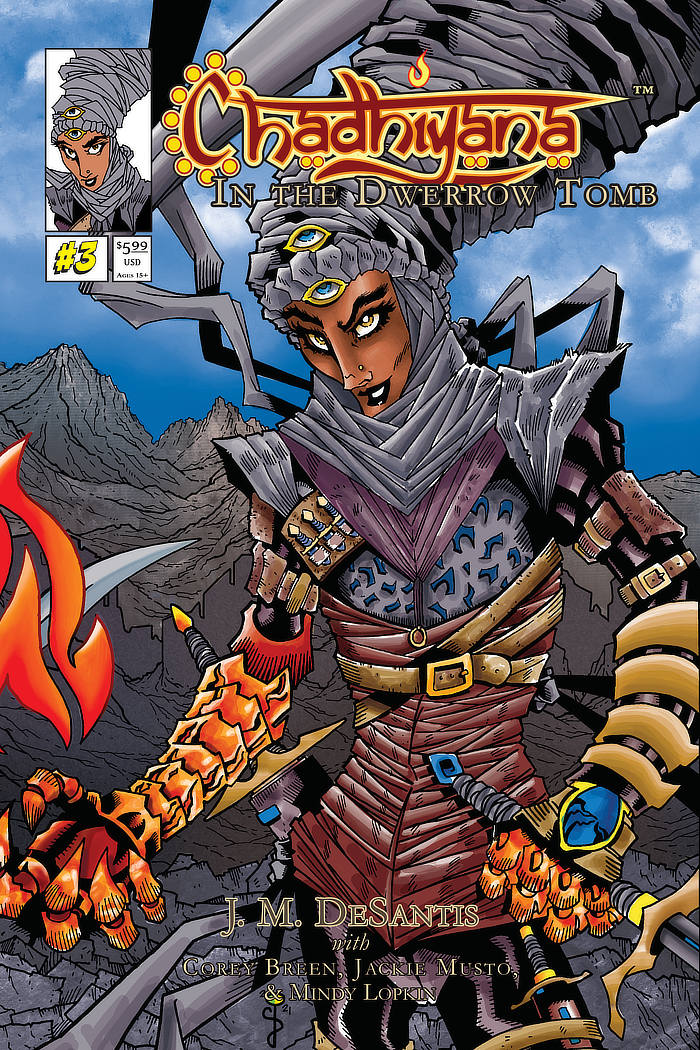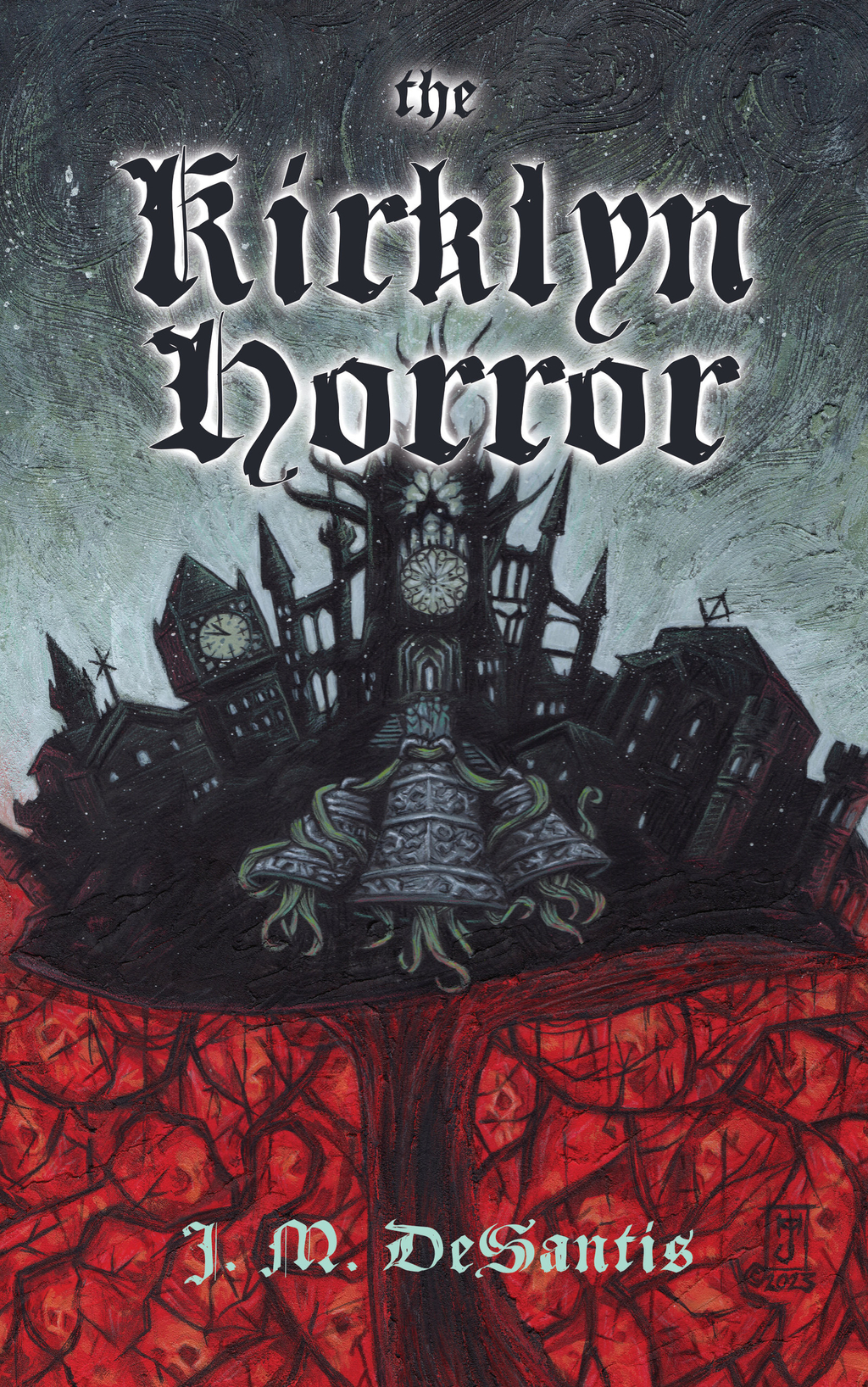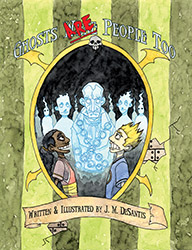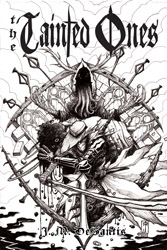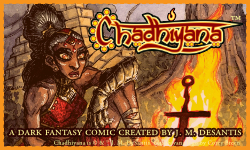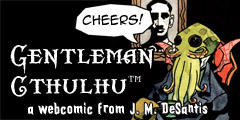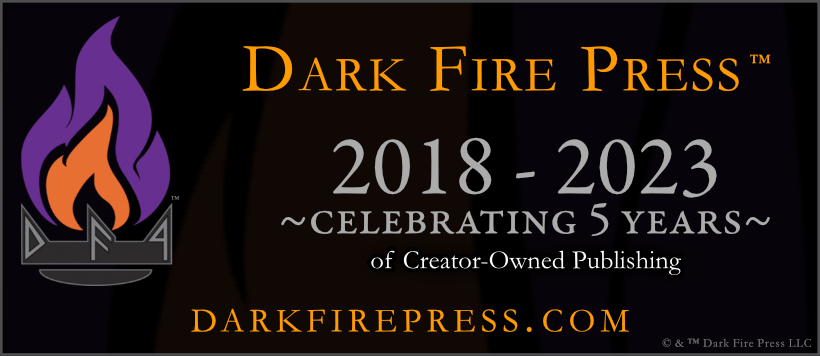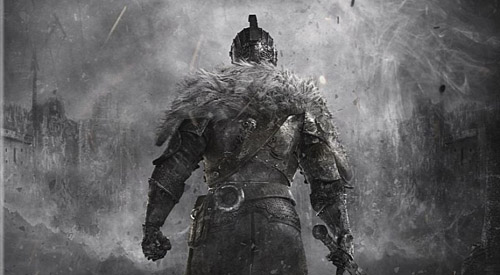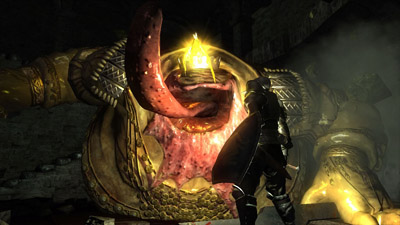A Return to the Land of the First Flame
Not since I was working on Game-Flush.com (which is becoming quite a dated reference now) have I written about video games or my gaming experiences. Though this is a blog primarily about my writing and art, gaming has been one of the few past times in which I have consistently engaged since an early age. As such, video games have always been an inspiration to me creatively, and in fact are largely responsible for why I turned to comics as a medium for telling my stories (perhaps I’ll write more on that another time). So, I thought I’d change things up a bit this week and write about games. Specifically, the Souls series, in honour of recently completing my first play though Dark Souls 2.
Now, I’ll start by saying I’m an avid fan of the Souls series–despite the fact that it took me about five months to complete my one-hundred-twenty-plus hour first play through Dark Souls 2 (at least you know I’m not sitting around playing games when I should be working on comic pages–most of the time, that is). Of course, knowing now that I’m a Souls series fan, many of you gamers will either roll your eyes or form a renewed and deepened respect for me–I hope the latter–because it’s no secret that, for the most part, gamers either hate the Souls games or are fanatically obsessed with them.
In truth, I might never have become a Souls fan. When my brother (formerly Teach of Game-Flush) introduced me to Demon’s Souls, I was miserably addicted to the game, hating every stress-inducing moment of it, yet being unaccountably addicted to playing it. But I was addicted to it, nonetheless. Souls series haters argue against this point all the time, but it was the challenge of the game, the reward of failing again and again before finally claiming victory over a particularly difficult part, that kept me going.
It was an adjustment, to be sure, as I had become so used to the rinse-and-repeat, button-mashing, sitting-and-watching-45-minute-cinematic-story-epics structure of modern games (which I had come to loathe–at least in the old days, before voice actors, you had to press a button for a new set of dialogue text). But in truth, Demon’s Souls held more than just the challenge. The hopeless, secluded atmosphere which the game created is unrivaled, and once I had discovered the lore of Demon’s Souls, I began to fall in love with the story as well (there is a story, and it is vast and haunting).
Somewhat reluctantly I picked up Dark Souls, and it quickly became one of my favourite games of all time. I preferred its world and lore to that of Demon’s Souls, as well as its visuals, though the former title’s atmosphere was much better achieved, I think. The fact that it became one of my favourite games of all time was quite an achievement in itself, as I’ve not played a single game since graduating from university which has so inspired me. Indeed, elements of the Dark Souls world and lore were, in-part, an inspiration for Chadhiyana (though the “First Flame” of her world had already been written about before I’d played Dark Souls, Dark Souls did enhance its importance and give it its name).
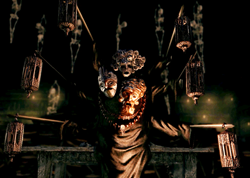 I cannot go into every bit of story I love in the game (the list is too long), but many of us Souls fans will agree that, the character, Pinwheel is perhaps one of the most fascinating, yet chilling characters in video game history. The implications of the Purging Stone’s description still haunt me to this day. And then of course, there is a hidden bit of story in the game which I believe was the single greatest storytelling achievement in the history of gaming, and rivals some of the best in any medium. To even allude to it would be to spoil it–it has to be experienced.
I cannot go into every bit of story I love in the game (the list is too long), but many of us Souls fans will agree that, the character, Pinwheel is perhaps one of the most fascinating, yet chilling characters in video game history. The implications of the Purging Stone’s description still haunt me to this day. And then of course, there is a hidden bit of story in the game which I believe was the single greatest storytelling achievement in the history of gaming, and rivals some of the best in any medium. To even allude to it would be to spoil it–it has to be experienced.
The way in which the story is told if fascinating. Many characters are not truthful in what they tell you. Perspectives rather than facts are related. Item descriptions give you a better understanding of the world and its history. Even the game itself and how it plays reveals something about the world. The player is forced to decipher and find the story, and what the player finds is quite a dark reality indeed.
That is the genius of the Souls games: the game mechanics, every item, every enemy, the progression of the game, the whole thing in its entirety is a single, cohesive world. Everything is there for a reason, and everything helps you better discover the lore of the world and how to progress successfully through it. I took a game design class in college, and essentially this was described as the goal of every game designer. This is what the perfect game seeks to achieve.
These things, the darkness of the world of the Souls series and that lack of spoon feeding everything to the player, are much in line with some of the themes of my own work and my methods of storytelling. I love a good, dark, rich, haunting tale, and I’d rather have the reader actively working out the story than spelling everything out for them. It’s a more rewarding experience, and it better immerses the reader/player in that experience.
I could go on and on about these games (and therein is another outstanding fact about them–the discussions and theories they inspire in the player), but I’ve already written more than most will probably take the time to read.
While I still love the first Dark Souls best, I can’t judge Dark Souls 2 in its entirety. I still have to play the DLC content (two of which have yet to be released) and journey through Drangleic for the second time. I hope there will be more Souls games, though it’s doubtful. Certainly, Bloodborne shows promise. It won’t be Dark Souls (I am a swords-and-armour type of guy, most of all), but I’m sure it will satisfy.
My hope is that more games will follow the model of the Souls series. No mimics or knock-offs, please! Rather, I hope game developers will emphasise rewarding challenges, and seamless gaming experiences. Perhaps, then, I’d be more inclined to pick up the games my friends recommend. And please, for the love of God, stop making me sit through hour-long cinematics. I hate that!




